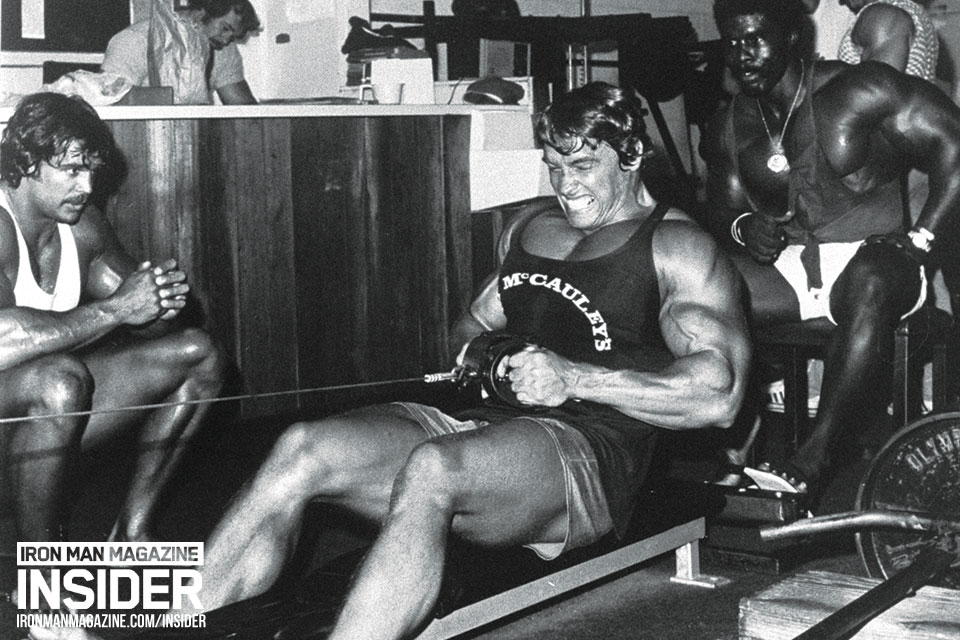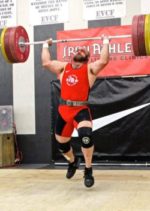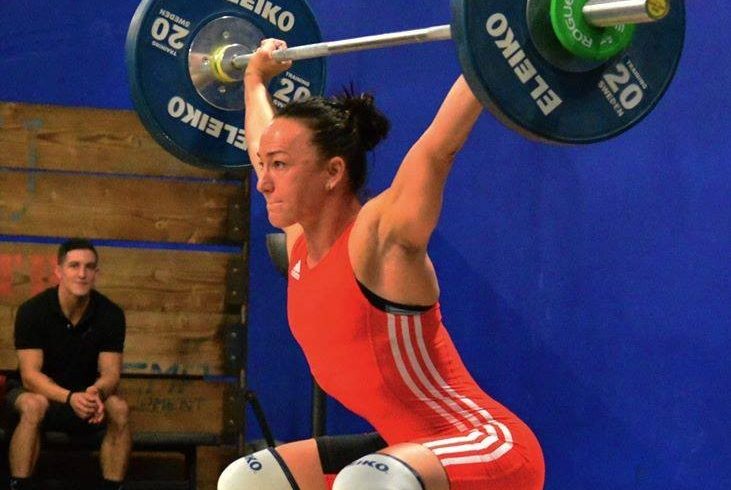The functional fitness movement was to some degree a backlash against the commercialization of fitness.…
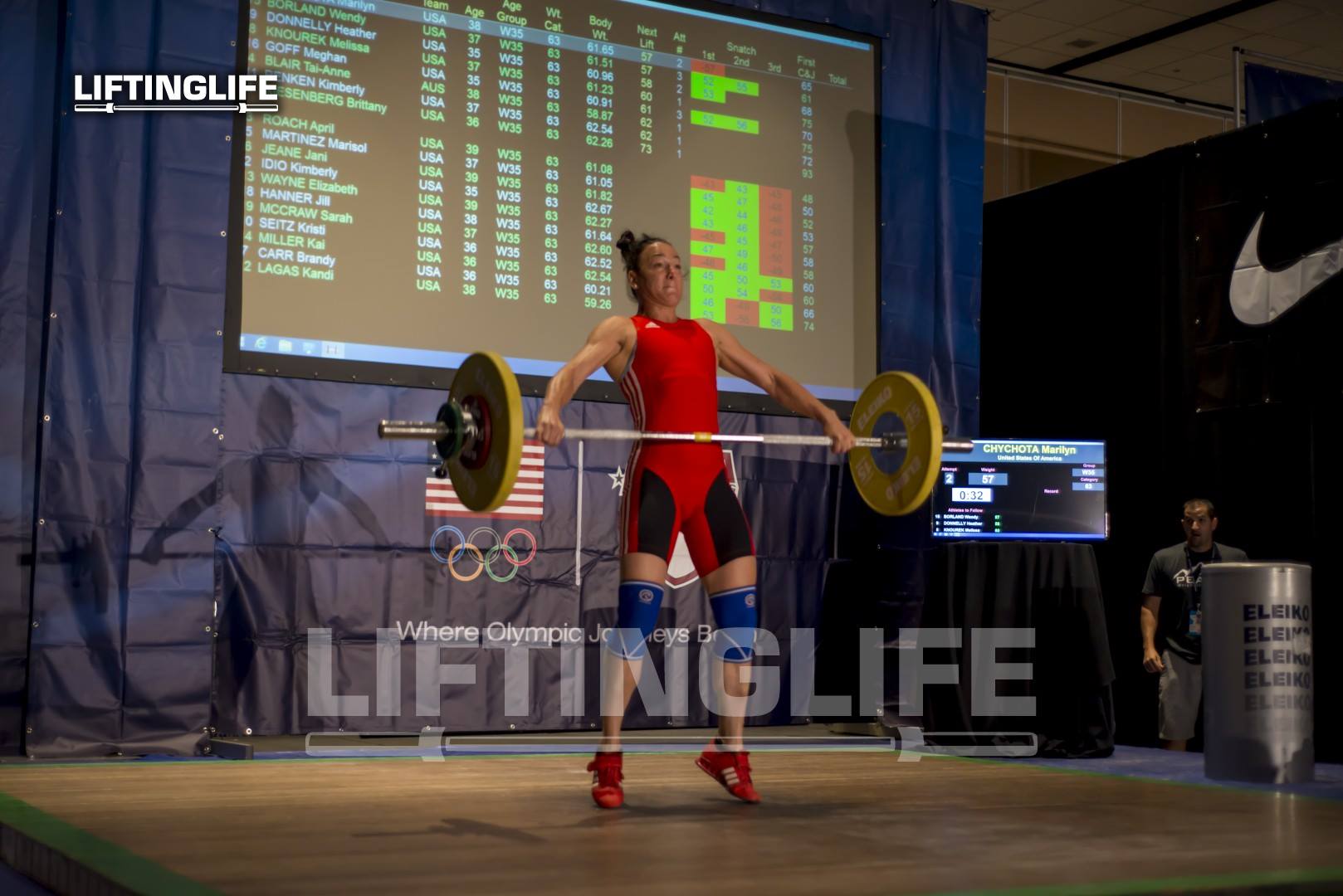
Shifting Gears: From Pro Endurance Athlete to Masters Weightlifter
Interview with Marilyn Chychota
How long have you been training as a weightlifter now, and how did you find Matt Foreman as your coach?
I got into weightlifting through CrossFit, like a lot of people. I always knew about weightlifting because I’m a sports nut and I’d seen it in the Olympics for years. When I retired from racing, I knew I wanted to give CrossFit a try. Looking at the sport, I diagnosed some of the basic things I’d need to learn. I already had a gymnastics background and good conditioning, but had never done weightlifting so that became my focus.
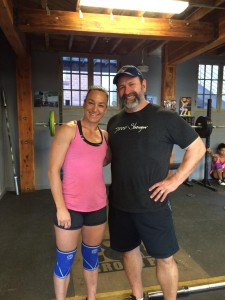
I initially started with Chris Derosa with Peaks weightlifting. I did my first weighting meet in May of 2015. There, I qualified for the Dallas Masters World Cup. Chris wanted me to do a few local meets before Dallas to get some platform experience, and I met Matt in that time. I began to transition to wanting to take weightlifting seriously. Matt was a really good fit in that I knew he’d worked with Masters athletes and was 100% a weightlifting coach. He is extremely good technically and I had some technical issues that his level of experience could fix. He also really understood my background—that I came from a high-level sporting history and was now an older athlete who still wanted to be competitive. It was important to me that he understood that I still wanted to be competitive even while I was still really new at this sport. I met him in July and he started helping me with some technical issues I had then. After Dallas, I asked him if he’d be willing to work with me full time. He and Chris are good friends—Chris supported that change. I started with Matt in August and have been with him since then.
Do you keep up with any of your conditioning while you train as a weightlifter?
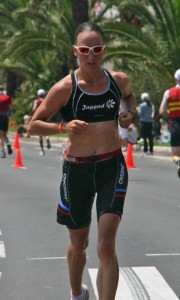 I told Matt that I have pretty big goals for weightlifting, and I respect what it takes—any time that you want to take one sport really seriously, you need to reach a certain commitment level. Obviously, being an endurance athlete has been a big part of me for a really long time. Also, as I get a little older, I want to make sure that my heart health and my blood pressure are still good. A big part of my social life is still being active and getting outdoors. So, I had an important conversation with Matt where I explained that endurance still needed to be a part of who I was as a person and we talked about what that could look like.
I told Matt that I have pretty big goals for weightlifting, and I respect what it takes—any time that you want to take one sport really seriously, you need to reach a certain commitment level. Obviously, being an endurance athlete has been a big part of me for a really long time. Also, as I get a little older, I want to make sure that my heart health and my blood pressure are still good. A big part of my social life is still being active and getting outdoors. So, I had an important conversation with Matt where I explained that endurance still needed to be a part of who I was as a person and we talked about what that could look like.
I knew that running or anything really long wasn’t going to be a good idea. So, now I still swim to condition. It works well with the weightlifting. Now and then I go on short hikes, but we limit that to when I don’t have a meet coming up. I bike sometimes too, but really not that often. There’s a balance between lifestyle and keeping it fun and taking my goals seriously. We found that some swimming and doing a little of what I like to do and lifting 5 days a week—a pretty full program for a Masters athlete—works really well for me.
What was the most difficult part of adapting to this new sport for you?
It would definitely be the mental side of knowing that the training hours are really different. The training for me is really my social life. It’s like a little kid going to the playground—it’s going to play with all my friends. I really like to work out. I get to hang out with people whom I like, and we’re doing activities we all enjoy. So, adapting to a sport where the training takes many fewer hours than what I’m accustomed to has been pretty challenging for me.
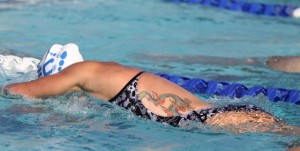
Another part of the transition for me was understanding the fatigue. Coming from a long distance sport, I was used to being tired all the time, but not very sore. With weightlifting, I’ve found that I’m not super tired, but I’m sore.
Strength is always going to be tougher for me to develop, but Matt is very good at making athletes strong so I have a lot of confidence in that.
One more thing, as a female, is the change in body shape. My friends ask me if it’s something I worry about or think about. Luckily, I’m surrounded by a lot of people in the CrossFit and weightlifting world, and they’re changing some popular conceptions of women’s body image. Still, I’m used to being small and slender, and becoming more muscular was a big change. A fun change. I’ve enjoyed it.
Could you speak a bit about your experience working with CrossFit and strength athletes on their aerobic capacity?
In 2015, I did CrossFit Now’s endurance programming for their competition team, and I’ve done some consulting for a few other competitive CrossFitters. As a sport, CrossFit is starting to see more variation in their workouts. We’re seeing things like the swim events and the hour-long workouts. CrossFit is starting to understand that these events require different training; back when it started, CrossFit was more all max effort all the time. We can talk to CrossFitters about pacing, about different types of movements for aerobic capacity, about developing a full training program: How do we incorporate intervals and threshold training even more effectively without compromising strength? That’s important for CrossFitters—being able to do these super-long workouts without affecting strength.
Can you speak more about training athletes for the mental aspects of competition?
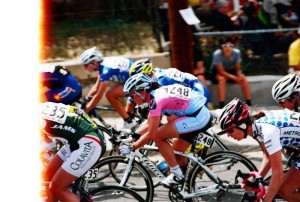
There are two different mental aspects to athletics. First, there’s the day-to-day: seeing a sport through, figuring out how you handle yourself as an athlete, how you progress, your dedication level, figuring out how to make the best of yourself in every single session, etc. The second is the mental side of competition—I have a whole hour-long presentation on this. It’s about really understanding what state of mind you compete best at. There are all sorts of exercises that athletes can do to figure out what emotional and mental state they need to be in to compete well. When you do that, you can train yourself to become more consistent in competition. Just as you have a warm-up plan, you have plan for how to set yourself up for your best mental and emotional state.
What are your goals now as a coach and athlete?
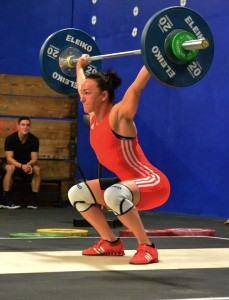
As a coach, I work with Endurance Corner, which I’ve worked with since 2008. I coach mostly top amateurs and professionals in the endurance world. I intend to continue working as a premier coach in that world. I’m also having fun breaking into the endurance side of CrossFit—taking CrossFit and strength athletes and helping them figure out how to integrate endurance training.
As an athlete, I’m happy with my endurance career, endurance workouts are still a part of my lifestyle. Now, as a competitor, I’m focused on weightlifting. My ultimate goal would be to podium at the World Championship as a Masters competitor. I don’t know if it’ll happen yet, but I’m looking forward to working with Matt to see if it’s possible.
